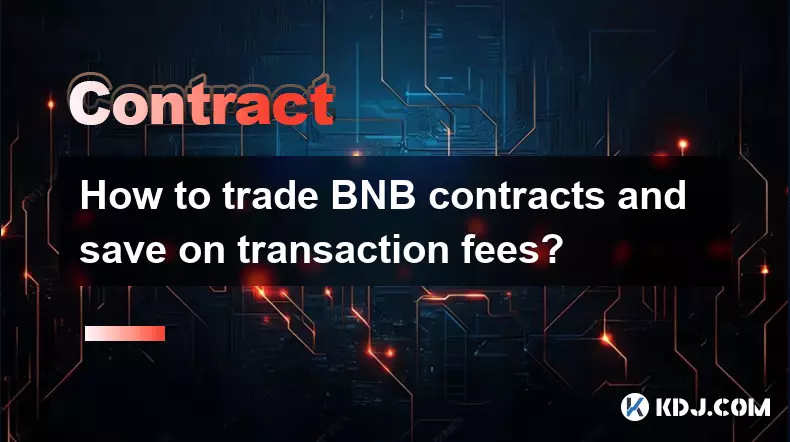-
 bitcoin
bitcoin $87959.907984 USD
1.34% -
 ethereum
ethereum $2920.497338 USD
3.04% -
 tether
tether $0.999775 USD
0.00% -
 xrp
xrp $2.237324 USD
8.12% -
 bnb
bnb $860.243768 USD
0.90% -
 solana
solana $138.089498 USD
5.43% -
 usd-coin
usd-coin $0.999807 USD
0.01% -
 tron
tron $0.272801 USD
-1.53% -
 dogecoin
dogecoin $0.150904 USD
2.96% -
 cardano
cardano $0.421635 USD
1.97% -
 hyperliquid
hyperliquid $32.152445 USD
2.23% -
 bitcoin-cash
bitcoin-cash $533.301069 USD
-1.94% -
 chainlink
chainlink $12.953417 USD
2.68% -
 unus-sed-leo
unus-sed-leo $9.535951 USD
0.73% -
 zcash
zcash $521.483386 USD
-2.87%
How do I simulate trading in Coinbase contracts?
Coinbase doesn't support direct smart contract trading, but users can simulate it via testnets, developer tools like Hardhat, and dApps using Coinbase Wallet.
Sep 20, 2025 at 03:37 am

Understanding Coinbase and Contract Trading
1. Coinbase does not currently offer native support for smart contract-based trading or decentralized exchange functionality on its main platform. The services provided are primarily centered around buying, selling, and holding cryptocurrencies such as Bitcoin, Ethereum, and other listed digital assets. While Coinbase supports blockchain technologies that enable smart contracts—like Ethereum—it does not allow users to deploy or interact with custom contracts directly through its standard interface.
2. Users interested in simulating trades based on contract logic must rely on external tools or platforms that support Ethereum Virtual Machine (EVM) compatibility. These include development environments like Hardhat or Truffle, which allow developers to write, test, and simulate smart contracts before deploying them on live networks. Such simulations can mirror how automated trading logic would behave under real conditions without risking actual funds.
3. Although Coinbase does not provide a built-in sandbox for contract trading simulation, it does offer the Coinbase Wallet and integration with decentralized applications (dApps). This enables technically skilled users to connect their wallets to third-party platforms where simulated or testnet trading can occur. For example, using the Goerli or Sepolia testnets, traders can execute mock transactions and evaluate contract behavior.
4. Another approach involves leveraging APIs offered by Coinbase. Developers can use the Coinbase API to pull real-time price data and simulate trade execution based on predefined rules resembling smart contract logic. This method allows algorithmic traders to model strategies such as limit orders, stop losses, or arbitrage opportunities without engaging actual contract deployment.
Using Testnets for Simulated Contract Interactions
1. To simulate contract-based trading effectively, developers often turn to Ethereum testnets supported by Coinbase Wallet. These testnets—such as Sepolia or Goerli—mirror the functionality of the main Ethereum network but use 'test' Ether that holds no monetary value. By connecting a Coinbase Wallet to these networks, users can interact with dApps designed for trading simulations.
2. On these testnets, users can deploy sample contracts that emulate decentralized exchanges (DEXs), enabling virtual swaps between tokens. Tools like Remix IDE or Alchemy Dapp Browser allow direct interaction with these contracts while using Coinbase Wallet for signing transactions. This setup closely resembles real-world trading scenarios involving liquidity pools and automated market makers.
3. Acquiring test Ether is essential for covering gas fees during simulation. Several faucets distribute testnet ETH upon request. Once funded, users can execute multiple simulated trades, assess slippage, and analyze transaction timing—all critical components when evaluating contract-driven trading strategies.
4. Monitoring contract events and state changes during simulation helps identify potential flaws in logic or inefficiencies in execution paths. Using tools like Etherscan for testnets, developers can inspect every transaction triggered through their simulated environment, gaining insights into performance and security considerations.
Leveraging Developer Tools Alongside Coinbase Services
1. Hardhat is one of the most powerful tools available for simulating contract interactions relevant to trading strategies. It provides a local Ethereum network that mimics mainnet behavior, allowing full control over block creation and transaction mining. When paired with a Coinbase Wallet configured for localhost connections, developers can test complex trading logic in isolation.
2. Through Hardhat’s scripting capabilities, users can automate sequences of token swaps, flash loans, or multi-step arbitrage routines. These scripts run against mocked versions of popular DeFi protocols, offering realistic feedback on how contracts might perform when exposed to live market data accessible via Coinbase’s pricing feeds.
3. Integration with frontend frameworks like React enables building user interfaces that connect to both Hardhat’s network and Coinbase Wallet. This combination allows for interactive testing of trading dashboards where buy/sell actions trigger simulated contract calls instead of real ones.
4. Additionally, Chainlink oracles can be simulated within these environments to feed mock price data into contracts. Since many trading algorithms depend on accurate off-chain information, replicating oracle behavior ensures more robust validation of contract resilience under fluctuating market conditions.
Frequently Asked Questions
Can I use my Coinbase account to deploy smart contracts?No, Coinbase.com does not support direct deployment of smart contracts. You must use developer tools like Hardhat, Remix, or Truffle and connect your Coinbase Wallet to deploy contracts on Ethereum or compatible networks.
Is there a way to practice trading with fake money on Coinbase?Coinbase does not offer a paper trading or demo mode for spot or contract trading. However, you can use third-party platforms that integrate with Coinbase Wallet and operate on testnets to simulate trades using non-valuable test tokens.
Does Coinbase Wallet support interaction with decentralized exchanges?Yes, Coinbase Wallet supports interaction with numerous decentralized exchanges including Uniswap, SushiSwap, and PancakeSwap. You can connect it to these platforms on both mainnet and testnet environments to simulate trades.
Are there risks involved in testing contracts even with testnet funds?While testnet Ether has no financial value, improper coding practices observed during testing could lead to vulnerabilities if applied to mainnet deployments. Always review contract code thoroughly and consider audits before going live.
Disclaimer:info@kdj.com
The information provided is not trading advice. kdj.com does not assume any responsibility for any investments made based on the information provided in this article. Cryptocurrencies are highly volatile and it is highly recommended that you invest with caution after thorough research!
If you believe that the content used on this website infringes your copyright, please contact us immediately (info@kdj.com) and we will delete it promptly.
- Big Apple Bets: Ripple Takes Europe, Google Stumbles in Seoul – A Global Payments Tug-of-War
- 2026-02-03 01:20:02
- Bitcoin Futures Face Fresh Collapse Concerns as Market Nerves Fray
- 2026-02-03 01:10:01
- Ozark AI Ignites Crypto Buzz: Strategic Listings Fueling 700x Price Acceleration Talk
- 2026-02-03 01:20:02
- Bitcoin Price Dips Below $80,000, Sparking Market Sell-Off and Liquidations
- 2026-02-03 01:10:01
- Rome's Trevi Fountain: A Two-Euro Ticket to Taming the Crowds
- 2026-02-03 01:00:02
- Justin Sun's $100 Million Bitcoin Bet: A Contrarian Play Amidst Crypto Winter
- 2026-02-03 01:15:02
Related knowledge

How to close a crypto contract position manually or automatically?
Feb 01,2026 at 11:19pm
Manual Position Closure Process1. Log into the trading platform where the contract is active and navigate to the 'Positions' or 'Open Orders' tab. 2. ...

How to understand the impact of Bitcoin ETFs on crypto contracts?
Feb 01,2026 at 04:19pm
Bitcoin ETFs and Market Liquidity1. Bitcoin ETFs introduce institutional capital directly into the spot market, increasing order book depth and reduci...

How to trade DeFi contracts during the current liquidity surge?
Feb 01,2026 at 07:00am
Understanding Liquidity Dynamics in DeFi Protocols1. Liquidity surges in DeFi are often triggered by coordinated capital inflows from yield farming in...

How to use social trading to copy crypto contract experts?
Feb 02,2026 at 07:40am
Understanding Social Trading Platforms1. Social trading platforms integrate real-time market data with user interaction features, enabling traders to ...

How to trade BNB contracts and save on transaction fees?
Feb 03,2026 at 12:39am
Understanding BNB Contract Trading Mechanics1. BNB contracts are derivative instruments traded on Binance Futures, allowing users to gain leveraged ex...

How to build a consistent crypto contract trading plan for 2026?
Feb 02,2026 at 10:59pm
Defining Contract Specifications1. Selecting the underlying asset requires evaluating liquidity depth, historical volatility, and exchange support acr...

How to close a crypto contract position manually or automatically?
Feb 01,2026 at 11:19pm
Manual Position Closure Process1. Log into the trading platform where the contract is active and navigate to the 'Positions' or 'Open Orders' tab. 2. ...

How to understand the impact of Bitcoin ETFs on crypto contracts?
Feb 01,2026 at 04:19pm
Bitcoin ETFs and Market Liquidity1. Bitcoin ETFs introduce institutional capital directly into the spot market, increasing order book depth and reduci...

How to trade DeFi contracts during the current liquidity surge?
Feb 01,2026 at 07:00am
Understanding Liquidity Dynamics in DeFi Protocols1. Liquidity surges in DeFi are often triggered by coordinated capital inflows from yield farming in...

How to use social trading to copy crypto contract experts?
Feb 02,2026 at 07:40am
Understanding Social Trading Platforms1. Social trading platforms integrate real-time market data with user interaction features, enabling traders to ...

How to trade BNB contracts and save on transaction fees?
Feb 03,2026 at 12:39am
Understanding BNB Contract Trading Mechanics1. BNB contracts are derivative instruments traded on Binance Futures, allowing users to gain leveraged ex...

How to build a consistent crypto contract trading plan for 2026?
Feb 02,2026 at 10:59pm
Defining Contract Specifications1. Selecting the underlying asset requires evaluating liquidity depth, historical volatility, and exchange support acr...
See all articles










































































